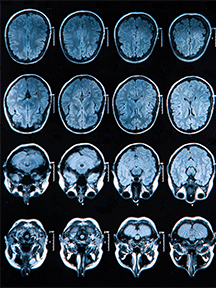By Aamina T. Shakir
“Watching the Lights Go Out”—the title that retired physician David Hilfiker chose for his new blog about his struggle with Alzheimer’s disease aptly encapsulates the calm dispassion with which he writes of an intensely emotional subject. But then, according to his recent profile in The Washington Times, “He has never been an emotional person.” Regardless, his numerous professional achievements have all centered on a dedication to the community, a constant he continues with his blog, the purpose of which, he says, is “to dispel some of the fear and embarrassment that surrounds Alzheimer’s.”
Hilfiker was born in 1945 to a Protestant pastor and a nurse, graduating high school as valedictorian, National Merit Scholar, and recipient of a scholarship to Yale, where he was admitted to Phi Beta Kappa in his junior year. At this point, in an attempt to cope with his burgeoning depression, he spent a year hitchhiking around Europe, including a job at a library for the blind in Germany. Upon returning to Yale, he became heavily involved in the anti-Vietnam War movement. According to the autobiography section on his website, “I fantasized about eventually working at the intersection of mind, body, and spirit. And medical training seemed like a good background for any career I would want to try.” While in medical school, he accepted an internship in a rural Minnesota community and ended up staying there for years. Later, he set up family practice in an inner-city area of Washington, D.C., where he still lives. In 1990 he founded Joseph’s House, a community home for homeless men with AIDS, living there with his family alongside the residents.
At Joseph’s House, which today serves cancer patients as well, Dr. Hilfiker became intimately acquainted with the mental deterioration some terminally ill patients undergo towards the end. But it was not until 2011 when he saw the first sign of it in himself. Upon driving to Virginia to visit an incarcerated friend, he was greeted familiarly by the prison chaplain but had no memory of ever having visited that prison before. After over a year of similar incidents, he finally received a diagnosis of “progressive cognitive impairment” when, during a follow-up visit to his neurologist, he was incapable of drawing a simple cube. As a physician, Hilfiker was naturally unsurprised, and while Alzheimer’s technically cannot be diagnosed until a biopsy after death identifies the characteristic plaques and protein tangles in the brain, he soon accepted that he had it and even joined a clinical trial at Georgetown University.
“I have journaled every day after that,” he writes on his website. “It might seem strange to want to make something so intimate public. But . . . This is how I process my own reality. . . . I hope that others with an early diagnosis of dementia and those who are in relationship to a person with dementia (including medical people) will find my experience helpful.” The author of three books over the past few decades and a prolific lecturer, Hilfiker easily discusses a topic that, in his experience, fellow dementia sufferers stigmatize or feel embarrassed to mention. So prevalent is this attitude, in fact, that Hilfiker has a three-part series of posts on his blog titled “Embarrassment” in which he shares the stories of social isolation and day-to-day coping mechanisms that other Alzheimer’s patients have contacted him with. For many years already, before his diagnosis, he has “tried to be open about [his] depression, believing that the millions of people who are shamed into hiding their diagnosis should have some models for self-revelation.” With 13.8 million Americans over 65 expected to have Alzheimer’s by 2050, nearly triple the current number, he hopes to introduce his old model to a new audience.
Doing so in future years will be difficult, but Hilfiker has prepared for that. Alzheimer’s is a terminal illness (though often not directly), gradually progressing to loss of mobility, motor and language skills in addition to complete memory loss, resulting in dependence on caretakers. Hilfiker has arranged with a friend to finish his chronicle when his dementia worsens to the point where he cannot write, the transformation of autobiography into biography a fitting parallel to his expected transformation into an altogether different person. For now, though, he continues to work at Joseph’s House, plan family vacations, and function near his normal level overall. “This is a waiting period,” he points out on his blog. “One of the joys of the disease, actually, has been much freedom from worrying about what I should do. . . . I know the basic outline of what’s coming. I have the truly important things—relationships, community, love, meaning, an appreciation of the world’s beauty—and they will remain.”
David Hilfiker’s blog can be found at www.davidhilfiker.blogspot.com.
Aamina T. Shakir is a junior at the University Oklahoma majoring in biochemistry and Spanish. The University of Oklahoma is home to the Alpha of Oklahoma chapter of Phi Beta Kappa.




